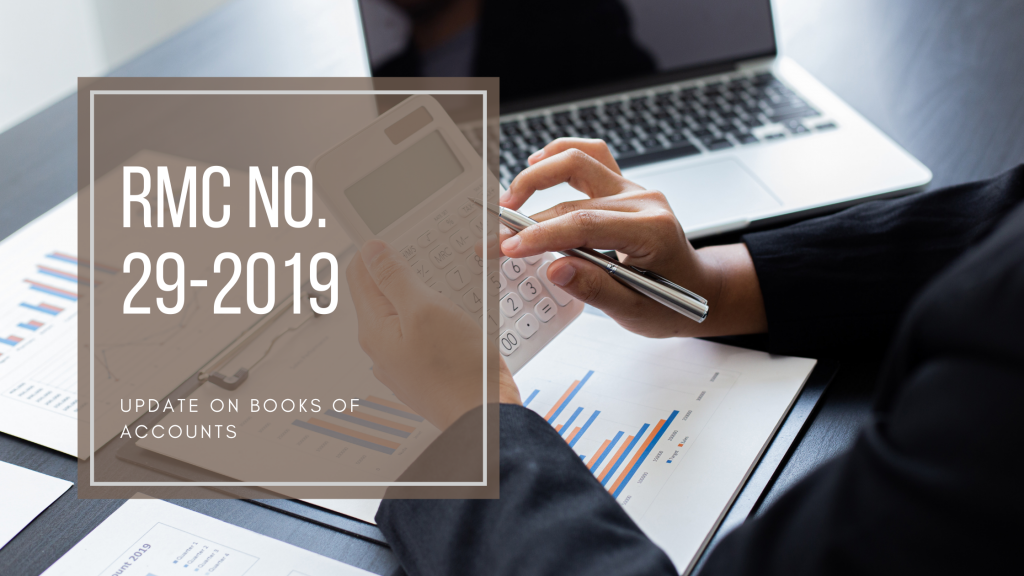As an entrepreneur, it is advisable to ensure your business accounts are always ready for auditing anytime of the year. It is a good practice to constantly keep your books of accounts updated and organized to avoid any inconvenience during the auditing period. From updating your records to managing changes since the last BIR tax audit, here are some tips to be audit-ready anytime of the year.
Track your finances
Tracking of your finances regularly will help you save time preparing for audits. It also ensures you are aware of the transactions happening inside your business.
Here are some methods you could do to ensure that you are constantly on track with your books of accounts:
- Organize and store your receipts properly. Keep your paper receipts in binders or filing cabinets. Second, use apps to organize and store digital receipts, such as Quickbooks, or other online accounting softwares available.
- Create a spreadsheet for recording transactions. Keeping a record of your receipts is also an efficient way to keep track of your transactions. It makes easier for you to find specific receipts instead of going through your compiled files. You can use any Excel program to record transactions and categorize them by date, purpose, or amount.
Keep reconciliation a practice
Reconciliation is a process of comparing two different records to make sure that both numbers are the same and accurate. If you reconcile your accounts regularly, you can verify that your books of accounts are correct and complete. Also, reconciliatio is advisable to do regularly, either monthly or quarterly to ensure that all of your books of accounts are accurate. This significantly reduces the chances of having issues during a BIR tax audit.
Perform a self-audit for your business
Running a business can be difficult as you may not be in control of all of the transactions that take place to keep your business running smoothly. If you run into such issues or notice any unusual transaction on your accounts, it is best to resolve it immediately to avoid an issue. during the audit. This saves you from searching through old documents to clarify details on a particular transaction. Also, it is best to ensure that your organization is following best accounting practices to avoid delays in your audit.
Assess your current business standing and changes
Your business has likely already been audited, which will require you to make several changes to apply the recommendations in the final audit report. When preparing for your next audit, it is important to consider the changes your business has made since the last audit. There are two changes to consider during this time:
- Changes relate to investing in new projects and government grants, as well as supporting your organization.
- Changes in the internal control systems and management accounting standards.
By covering every detail of your business changes you can keep clear and accurate records and avoid the possibility of being flagged during your audit.
BIR Tax Audit Process
BIR will randomly select businesses for review. If selected, you must submit your account books and other necessary documents for the audit. Here is an overview of how the BIR conducts its audits:
- Once BIR selects your business for audit, you will receive a Letter of Authority (LOA) which authorizes a Revenue Officer to review your books and other accounting records to determine if you have any internal tax liabilities. Also, the LOA specifies the type of tax to be audited and a list of the documents required to present.
- After receiving the LOA, it is advisable to send the required documents immediately in order to avoid reaching the Subpoena Duces Tecum phase, where your business is obliged to send the specified documents within a limited time. Failure to comply with the Subpoena Duces Tecum will expose your business to criminal proceedings through action by the public prosecutor.
- BIR will send you a Preliminary Assessment Notice (PAN) with the RO’s initial findings after consulting and examining your accounts. After receiving your PAN, you are given fifteen days to hand in a letter of protest detailing your discussions about your discrepancies with the PAN, if there’s any.
- BIR will issue a Final Assessment Notice (FAN) if they found issues in your PAN, which requires you to respond within fifteen days for you to resolve any issues stated.
The specific BIR tax audit process will depend on the nature of your tax case during your audit, but you will generally go through this process.
It takes lots of time and effort to ensure your books of accounts are correct and consistent to keep your business away from issues throughout the audit. By maintaining track of your records, you can make certain that your business is always prepared for the audit.
BIR tax audit processes are challenging. If you thought the process is too thorough, it’s farsmart to reach out on a tax compliance company for recommendations on getting ready your business for the next audit. At Keepsmart Consultancy Solution Inc., we offer a complete tax audit consulting service to our clients. Also, we provide a free course to get a better understanding how to understand the process of a BIR tax audit.
To know more about tax compliance service, book an appointment wit us.



